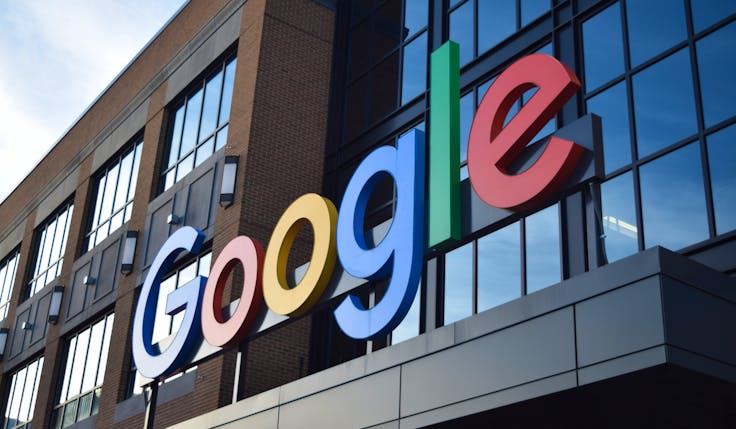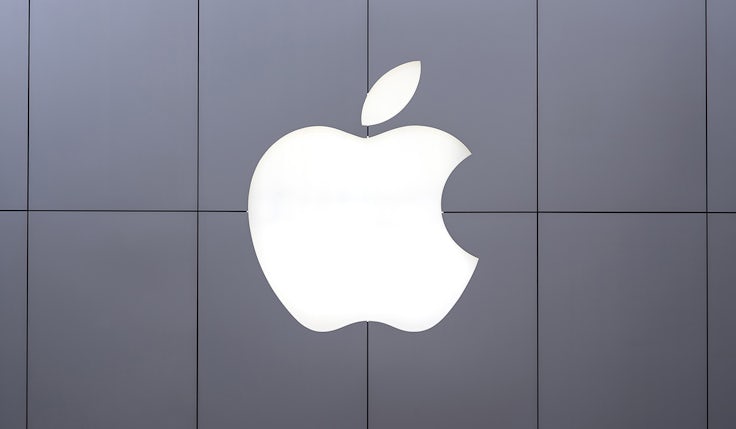Why Google could become the next big demise story
While Google may seem too big to fail, the rise of AI search has left the tech giant on its heels, leaving it needing to figure out where it fits into this new reality or face the consequences.

There are many things that I wish my kids got to experience which I did when I was younger.
The visit to Woolworths to see the huge pick ‘n’ mix display. The Friday trip to the video store to pick out the weekend film. And I’ll never forget going to Toys ‘R’ Us for the first time and wanting to be ‘accidentally’ locked in for the night so I could play with all the toys.
But the world moves on. Brands fail. Stores are shut down.
When people think of a tech giant like Google, however, they assume it’s too big to fail. I wouldn’t be so certain. In this article, I’ll explain why Google could be the next big company to face a similar fate, what they should do to prevent it, and why it may be inevitable no matter what it does.
Welcome to the Generative Era
We’re currently in a shift. Some people refer to it as the next industrial revolution, I call it the generative era. A time when generative value is going to be discussed in ways that we haven’t seen before. And it’s this problem that is troubling Google.
Generative content, or LLMs, are the pain in the digital backside of Google. When OpenAI released ChatGPT, they caught Google napping. The subsequent result was a series of unusual product launches in quick succession, leaving the market confused.
AI is going to eat your search traffic – don’t let it eat your brandI still have PTSD from spending months learning Google+ and still not ‘getting it’ only for them to pull the plug on what was hailed as the end of Facebook. It wasn’t. And today, Google has done an equally bizarre job of launching AI mode, AI overviews and Gemini.
The search industry is in a state of general panic. Even Gary Vee has aired his views, saying he’s concerned for those who have overleveraged on paid search. And still, I’m left scratching my head. What exactly does Google want me to use?
So…what is Google’s product?
Way back in 2016, Kevin Kelly, the editor of Wired magazine, wrote a book called Inevitable, in which he predicted that by 2026, Google’s main product would be an AI product, not search. And I think that’s a pretty accurate estimation of where things are heading right now.
Of course, it’s still 2025, and there’s time to move, but if you look around at Google, it’s a mess. What’s their main product? Is it Gemini? Is it Google search? It’s hard to understand.
Recently, Samsung updated my phone and I now have Gemini with the push of a button. I use it to ask really simple things that I don’t want to bother searching for on the internet, but at the same time, I’m not paying for it. Additionally, it’s things that I wouldn’t click on in a search anyway. It’s simple answers, it’s no-click searches, and Google is winning that because it’s on my phone and just a click away.
‘Avoid reinventing the wheel’: How marketers are approaching AI searchBut, to be honest, I don’t use it for anything else. If I want anything serious done, I head to ChatGPT on my laptop or phone. I use it frequently for various tasks, including searching, content creation, and data analysis. The capabilities of ChatGPT make it my go-to platform, as I consistently find the results to be better than those from Google’s offerings.
It’s not that I haven’t given Gemini a chance – I have – but the fact is that everything Google has been touching lately makes no sense. Take my Google Home Mini. That device was heralded as the beginning of the voice search revolution but, in reality, is little more than a speaker and a glorified egg timer.
I’ve read that Google is bringing a version of its Gemini Voice Assistant to the hardware, but at time of writing, there is no sign of it. Everything from Sheets to Docs, nothing is remotely as good at AI as ChatGPT and other platforms such as Claude and Perplexity.
But this is the least of their troubles.
Generative value trumps cognitive effort
If you were to ask me what I feel is Google’s ultimate undoing, it’s that its search engine is at war with everyone.
Paid search has gone from a few listings and cheap clicks to eye-wateringly expensive and dominating page one of every search result.
Where there isn’t a paid search listing, they’ve scooped up all the blog content from sites and now share an amalgamated AI overview of any subject, reducing traffic to sites dependent on ad revenue.
And their Helpful Content Update destroyed all the ‘independent blogs’ that were earning through affiliate deals.
Oh, and let’s not forget the launch of AI mode on search pages in the US, along with a promise that it’s coming to other regions soon.
The real reason that Blockbuster went bust was that people simply stopped paying them. And this is ultimately the big issue for Google.
However, despite this, for the vast majority of searches, which occur in the billions every day, Google’s search results are “good enough” to satisfy most users’ needs. This reflects the concept of “satisficing” that Rory Sutherland discusses in his book Alchemy – as humans, we often are happy with information that is good enough.
And despite its flaws, Google has historically done a decent job at this. But what if something came along which did an even better job? Enter OpenAI.
Their systems eliminate all the cognitive effort required. You speak into them, you give it a bit of information, and it goes off and does a lot of searching for you. It provides hyper-specific results tailored to your needs.
But it’s more than just search results, these models are generating something of tangible value: effort and time. And because the models learn about you, the results are scarily good. Trust me, I test this daily. But generative value goes far beyond this.
The magic hat of LLMs
When I was younger, the go-to sources for finding information were things like the yellow pages, phone books, and the Argos catalogue. These were staples in our household, and I have fond memories of poring through them.
The Argos catalogue was the book of dreams, and I spent months fantasising that Santa would bring me the AT-AT from Star Wars. It’s possibly true that the anticipation of Christmas was made even better and more exciting because you could see the toys of your dreams with a flick of a page.
Of course, those physical reference materials have long been made obsolete by the rise of digital search. This is part of the issue that Google faces. The magic hat of LLMs.
‘Profound implications for the industry’: Mastercard’s CMO on marketing’s agentic AI futureYou can create videos, write stories and create images. You can do almost everything that your mind wants. Find things, analyse things, understand things in different ways, and, yes, search for things.
LLMs are a place you go to do things. And some of those things are searching. The fact that LLMs can act as powerful personal assistants, capable of handling an increasingly wide range of tasks, poses a significant challenge for Google.
Rather than heading to Google’s search platform or other offerings, users are more likely to turn to LLM-powered tools as their first stop. This creates a branding and identity problem for Google. Where do they want users to engage with their services?
The Netflix effect
It’s easy to blame the demise of Blockbuster on Netflix. But Netflix wasn’t their issue, in reality, it was effort and value.
More films, lower cost, and you didn’t need to leave the house. Is it any wonder that people choose streaming over trudging to the video shop? The Netflix effect is precisely what OpenAI and other platforms have over Google. You can accomplish more and save a significant amount of effort all in one place.
However, the reason that Blockbuster went bust was that people simply stopped paying them. And this is ultimately the big issue for Google.
Paid search doesn’t make search engines better, it ‘leaches’ off organic search traffic. This was Google’s first product. To organise the world’s information.
But if enough of us head to AI platforms such as ChatGPT, then we are no longer in the search results. Bots are.
Of course, there are ways for Google to deal with this. One option is a deal for OpenAI that encourages them to click on and recommend paid ad listings, however, all of this comes at a cost in terms of results.
Doing this, though, would repeat the same mistake that turned search into a sponsored listing mess and would impact the quality of results you get from AI search engines.
This is the same issue that Blockbuster faced. If they’d become a streaming platform first, they would have destroyed their business model for survival.
So, what should Google do? They need to make a decision. Do they want you to use their search engine or their Gemini App?
It’s a choice they need to make, and once they do, they need to make it clear to everyone and commit fully.
Search first or Gemini first? It’s their move. Will they make it?






